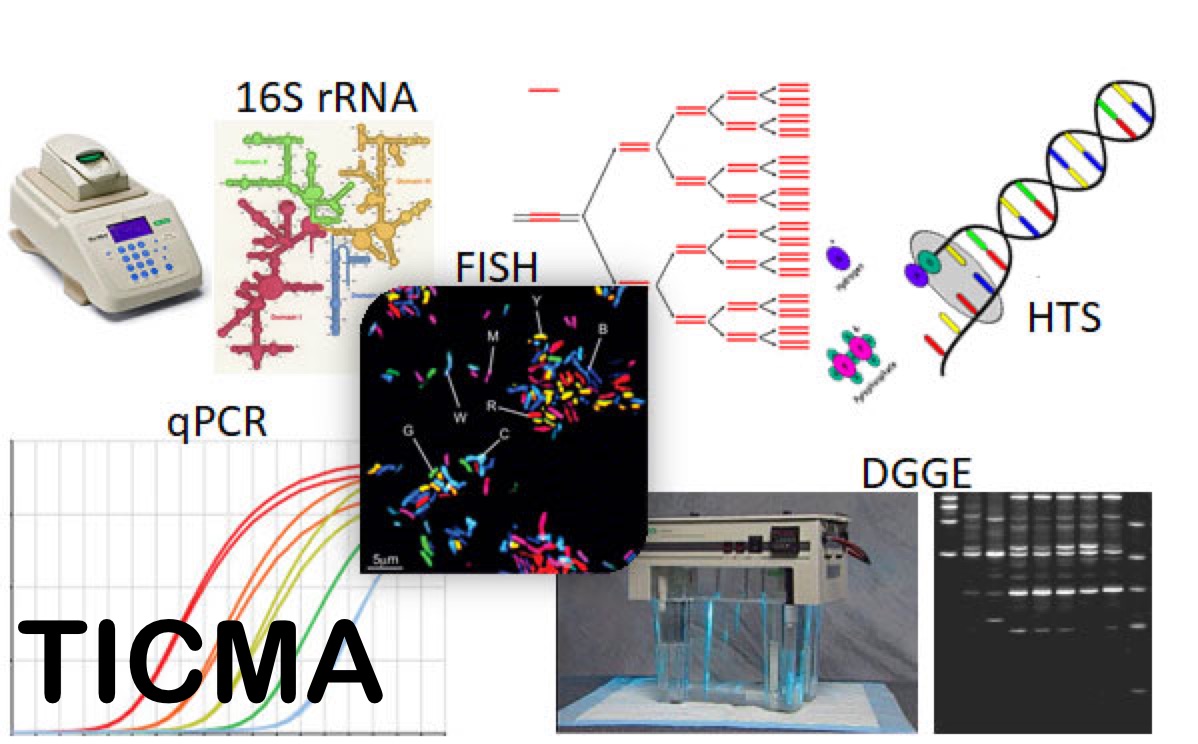Independent Culture Techniques in Food Microbiology (TICMA) 14th Edition (4.2/5)
The course is aimed at professionals in the food industry, healthcare professionals specialized in food microbiology, and undergraduate and postgraduate students in food science and technology (Biology, Biochemistry, Biotechnology, among others). It is also intended for FP technicians (in dietetics, clinical laboratory, etc.). This course offers comprehensive and practical training for the characterization of the microbiota in foods, applying modern techniques that overcome the limitations of conventional cultivation.
goals
- Understand the theoretical basis of culture-independent molecular techniques (e.g., DGGE, FISH, metagenomics).
- Learn the necessary procedures, protocols, equipment and materials.
- Evaluate the applicability of the techniques in different samples or ecosystems.
- Recognize advantages, limitations and appropriate cases for each technique.
- Acquire skills to critically interpret scientific results.
Agenda
- Introduction to Food Microbiology
- Microbiological analysis of foods: conventional techniques
- Introduction to culture-independent microbiological techniques
- Isolation and purification of nucleic acids
- PCR amplification
- Quantitative-PCR or real-time PCR
- Denaturing Gradient Gel Electrophoresis (DGGE)
- Other electrophoretic techniques (SSCP, LH-PCR, TFLP, RISA, ARISA, etc.).
- Construction and analysis of gene libraries (gene libraries)
- Metataxonomic and metagenomics techniques
- Hybridization. FISH hybridization. Microarray construction and hybridization
- Analysis of proteins and fatty acid esters. Spectroscopic techniques
The professor responsible for this course is a PhD in Biology with extensive experience in teaching and research in the microbial characterization of foods and the human microbiota. The syllabus has been designed so that it can be followed by participants with different backgrounds.
If you want to know more details about the course you can send an email to Ana M. García (ana.garcia.ruiz@upm.es)

Independent Culture Techniques in Food Microbiology (TICMA) 14th Edition (4.2/5)
| SEM Members Price: | 150€ |
| Price Partners COBCM, SEBiot, SEIMC, AEBioS:: | 200€ |
| General public price: | 250€ |
| Start date: | 01/10/2026 |
| End date: | 30/12/2026 |
| Online course: | Go to Virtual Classroom |
| Deadline for registration: | 28/09/2026 |
Request more information
Fill in this form and we will contact you to offer you the information you need.



